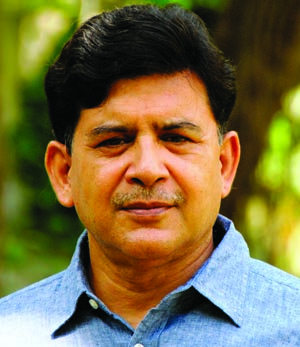
Special Correspondent :
Underemployment has become the main challenge amid growing labour force of the country, former Advisor to Caretaker Government Dr. Hossain Zillur Rahman has said.
He said the issue of underemployment needs to be discussed at the policy-making level so that the development strategy could be enacted with due priority on generation of employment.
He said the reason of the higher number of underemployment in the country was missing of target of employment generation in development strategy.
He said the country’s population is growing fast and thus, contributing to the labour market but employment has become difficult.
“Main problem in our country is underemployment. Because, our development strategy has no target to generate employment that much,” Dr. Zillur said.
He said the country’s labour force is growing in a faster pace, around 2.2 million every year adding to total workable manpower, but employment against demand is insignificant that drives hundreds of youths somehow earn bread for him or her or respective family.
“In developed countries, unemployed people enjoy compensation from the governments. In a country like us, there is no such system. So, people must do something for income generation.”
The state of underemployment is when a job in the labour market or self employment does not satisfy a person in generating wage to fulfil demands compared to his or her eligibility, according to International Labour Organisation (ILO). It said unemployment means working-age population who do not have a job but are looking for one and are immediately available to work if they find one.
Out of total 160 million population in Bangladesh, labour force (Aged 15 and above) estimated to 98.6 million in 2015. Of them, 41.6 million persons were between age 15 and 29 while remaining 57.0 million aged between 30 and above, according to the Labour Force Survey 2015-16 of Bangladesh Bureau of Statistics (BBS).
In the survey, the rate of unemployment in Bangladesh estimated by BBS at 4.2 percent of total labour force irrespective of age group but above 15. The underemployment rate was not specified whatsoever.
However, the BBS survey estimated informal employment in Bangladesh at about 89 percent of the total number of jobs in the labor market. It is more prevalent in the rural areas than in urban areas. Women are also more likely to be under informal employment arrangements.
Of total jobs, the rates of employment in informal sectors in India and Pakistan respectively 81 percent and 73.3 percent, ILO says.
Dr. Hossain Zillur Rahman was the lead consultant of Bangladesh’s Poverty Reduction Strategy Paper (PRSP) in 2005 and is leading Power and Participation Research Centre (PPRC) as Executive Chairman.
He said, “In our country, the discussion should be about underemployment. It requires immediate remedy after assessing the meaningful, effective employment for a person who deserves as per his or her qualification and area of skills. We often came to know that a person is running a tea stall or serving as an office orderly after passing higher echelon of education. It should not continue anymore.”
“To overcome this state of underemployment, all the development strategy should be based on the target of employment as per skills. Currently, the development schemes being implemented are using modern technology that reduces human involvement during the implementation stages.”
Dr Zillur said enhance productivity and employment generation based development schemes only can ease the current state of underemployment and unemployment.
“In our education system, an ordinary graduate is not capable to serve the purposes of business or marketing. On the other hand, a person who completes BBA (Bachelor of Business Administration) may not be effective in delivering service at the position he or she is picked for.”
He said the government’s current scheme of developing ICT (Information and Communication Technology) skills among youths would not work to employ all the unemployed and underemployed persons.
He said the projects undertaken about developing Special Economic Zones (SEZs) would also not help much to generate employment as those are based on improved technology, which reduces labour utilization.
“The readymade garment industry is an example before us. The sector is gradually reducing the utilization of labour, which finally resulting to lessening employment. Adapting advanced technology means lessening the use of human capital.”
Meanwhile, Bangladesh’s unemployment situation has been worsening over the years that potentially resulting in risky migration, drug peddling, abuse, addiction and smuggling and rise of criminal activities in the country.

